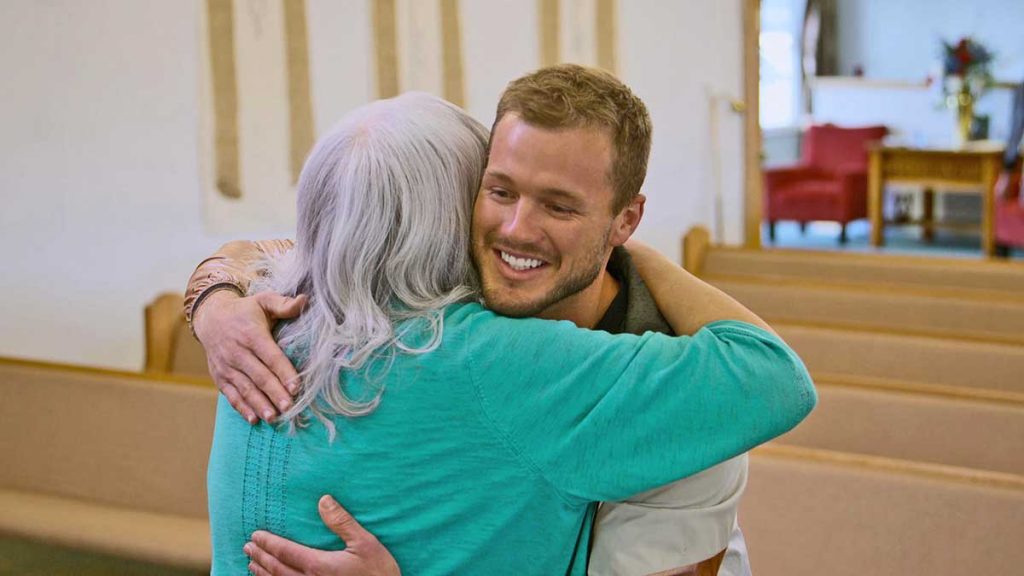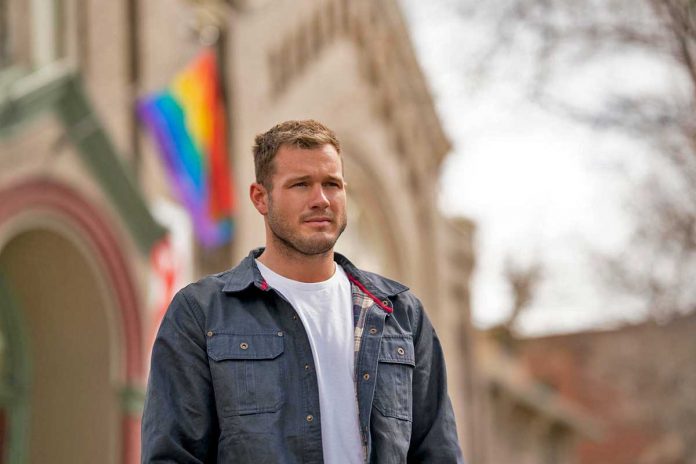“Coming Out Colton,” now streaming on Netflix, is an awkward new reality series about Colton Underwood, who came out publicly in April 2021. The former football player (he was signed to the Eagles at one point in his stalled athletic career) and star of “The Bachelor” has been a controversial figure because he stalked and harassed Cassie Randolph, his girlfriend from that romantic reality show.
The six half-hour episodes feature Underwood being contrite and accepting responsibility for his past mistakes. He is also figuring out how to live his life as a newly out gay man. He is certainly telegenic, and he earns some empathy as he struggles with the various situations he encounters coming out as a man of faith. However, as “Coming Out Colton” tracks his effort to live and tell his truth, the series scans as a calculated bid for legitimacy and redemption.
Underwood acknowledges that he has much to atone for, and he spins a narrative that his bad behavior was a result of fear; his abusive relationship with Randolph was a last-ditch bid for heterosexuality, and a way of avoiding confronting being gay. His lack of queer role models, and the homophobia he saw — and admittedly participated in — in the toxic culture of sports compounded his shame and impacted his mental health. Underwood hit bottom when he tried to take his own life after Randolph issued a restraining order against her ex for putting a tracking device on her car.
“Coming Out Colton” allows Underwood to explain, but not excuse, his behavior and past actions, in the hope that viewers will accept him and his efforts to be and do better. Self-vindication is not a bad thing, but Underwood’s celebrity status makes it feel somewhat cheap and transparent. It is hard not to think that he continues to control his narrative through the reality TV medium, and some of the interactions he has feel forced.
There are “cute” moments of Underwood acting shy when asked, “What’s your type?,” but there are no discussions about him ever being with a guy or even kissing a man. (If headlines he made earlier this year are to be believed, Underwood was “blackmailed” into coming out, following an encounter at a spa in Los Angeles, a topic that goes unaddressed). The most revealing moment of his queer backstory is when Underwood admits to looking at gay porn. Yes, he was the “virgin” Bachelor, but this series promotes him as a “baby gay” with zero experience and little knowledge of the LGBTQ community. He is counseled to learn gay history and understand and embrace diversity — and his curiosity is commendable — but there is something unconvincing here. Underwood seems overwhelmed trying to absorb it all.

To the show’s credit, he uses his platform to address the conflict he faces as a gay man of faith. An extended conversation with church friends as well as his pastor who are less accepting than his family, friends, and even his high school coach (a father figure to Underwood), prompt him to find an LGBTQ-friendly church. In contrast, a heart-to-heart he has with Nicole Garcia, a transgender reverend, is inspiring, and helps Underwood understand and process some of his feelings and emotions and helps him work to stop hurting others.
Underwood has several members of the LGBTQ community in his corner to help guide him. Chief among them is out gay Olympian Gus Kenworthy, who provides the show’s comic relief. Kenworthy gets some of the best lines as he helps Underwood, by being open and honest with him. He also takes Underwood to a sex shop, hosts a “coming out” party in Nashville for him, and gets him a celebratory drink at the Stonewall Inn after Underwood tapes his “Good Morning America” coming out interview.
Underwood also gets support from out gay football players Dave Kopay, Michael Sam, and Esera Tuaolo, who in a subsequent episode, talks with him about faith. That “Coming Out Colton” does not acknowledge out gay pro football player Carl Nassib may feel like a missed opportunity, but that may be a function of timing. It does not detract from the show’s valid point about how sports can force gay athletes to hide their true selves and internalize homophobia and self-hate.
The series often plays like an extended therapy session, with Underwood directly addressing the camera at times, and explaining his insecurity, and feelings of intimidation. As he comes out to important people in his life and becomes more comfortable with who he is, he can be ingratiating (or irritating). He does not feel the pressure to hook up, claiming he wants an emotional attachment, not a one night stand. He talks about wanting a family when he meets a gay couple with an adopted son.
“Coming Out Colton” touches on some of the backlash Underwood received after he publicly came out. By the end of the series, it is possible that the reality TV star will find positive ways to live. The takeaway from this show is appreciating Underwood’s struggle to find and love himself and start living his best life. It’s a valuable lesson even if it is presented in a clunky manner.
